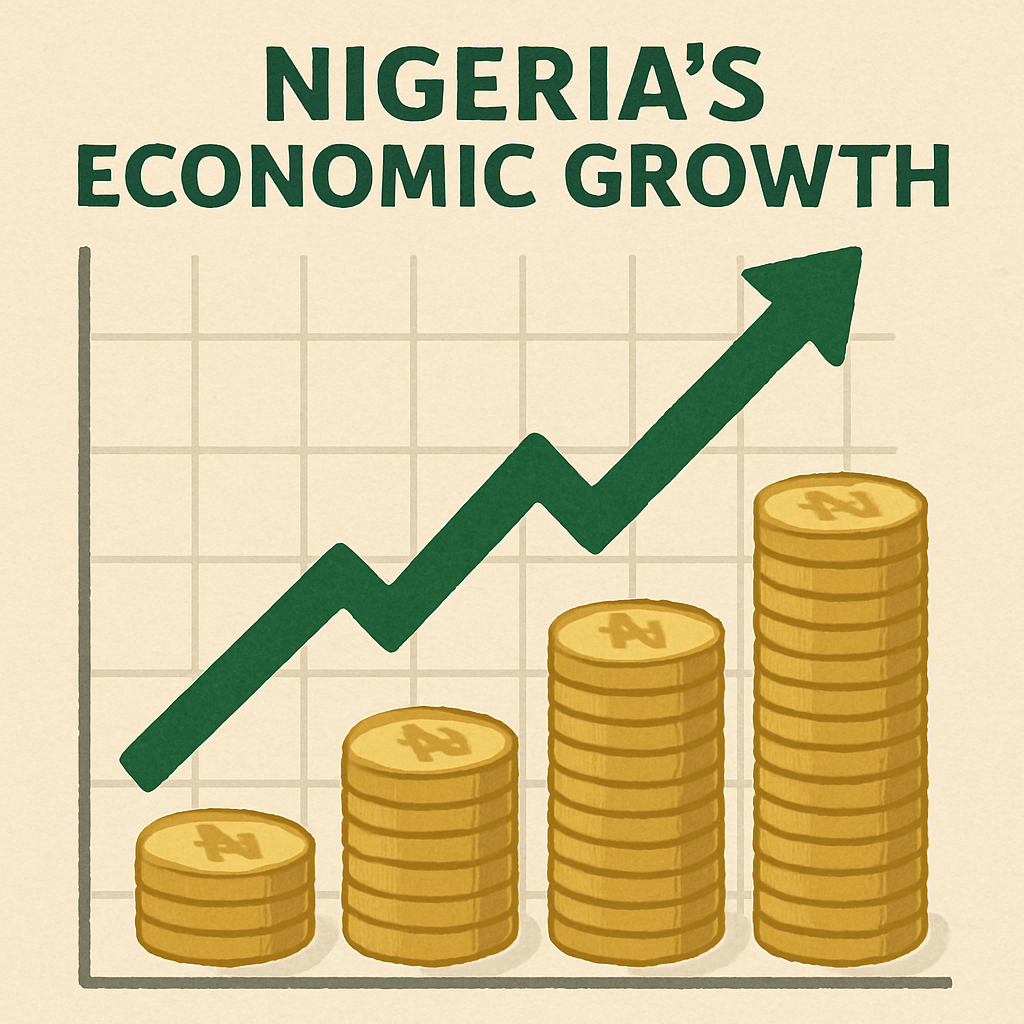In recent years, Nigeria has emerged as a bustling hub of economic activity, teeming with opportunities for enterprising individuals and corporations alike. Several industries stand out as particularly promising for entry. Whether you’re an investor seeking new ventures or a business looking to expand, understanding these sectors can position you for success in Nigeria’s growing economy.
Before diving into the industries, it’s essential to understand the broader economic landscape in Nigeria. With a population exceeding 200 million, Nigeria is Africa’s most populous country, boasting as one of the continent’s largest economies. The country’s economic outlook for 2025 appears promising, driven by diversification efforts and substantial investments in infrastructure.
Nigeria’s population is not only large but also youthful, with a median age of around 18 years. This youthful demographic presents a dynamic workforce eager to embrace innovation and technology. The burgeoning middle class is another critical factor driving consumer demand across various sectors, fostering a vibrant marketplace.
1. Agriculture and Agribusiness
Nigeria’s agricultural sector has long been a cornerstone of its economy, contributing significantly to the country’s GDP and employing millions. However, with the push for modernization and sustainable practices, the industry is ripe for transformation. There is a clear opportunity in agribusiness ventures, such as food processing/agro-processing (cassava, cocoa, rice), supply chain innovations, agri-tech (IoT, precision farming, mobile apps), livestock, aquaculture, organic farming, essential oils, and export-oriented farming.
There is a growing demand for value-added agricultural products, both domestically and internationally. Investing in food processing facilities can significantly increase the value of raw agricultural produce. You can tap into lucrative markets and meet the rising demand for packaged and processed foods.
Consumers are increasingly conscious of healthy living, leading to a higher demand for organically produced agricultural products. You would meet both the market demand and a sustainable business model.
Strategic advantage: The rise in non-oil exports, particularly cocoa, urea, and cashew nuts, increased by nearly 20% in H1 2025, demonstrating the country’s international openness and potential returns for such ventures.
2. Renewable Energy
The world is gradually moving towards sustainable energy, and Nigeria is not falling behind. Nigeria’s off-grid solar market is growing at a rate of approximately 22% annually, driven by energy shortages and the need for rural electrification.
With abundant sunlight throughout the year, solar power is a sustainable energy source and a valuable investment for many individuals, companies, and organisations.
Solar, wind, and hydroelectric power sources are gaining traction, supported by government incentives and international partnerships.
The Nigerian government is actively promoting renewable energy through various incentives and policies. These initiatives, part of Nigeria’s commitment to reducing its carbon footprint and achieving sustainable energy goals, provide a solid foundation for investors in the sector.
Opportunity: Whether it’s solar mini-grids, energy-efficient appliances, or EV charging, the need for energy solutions in Nigeria is not just urgent, but also highly profitable.
3. Information and Communication Technology (ICT)
The ICT industry in Nigeria has experienced rapid growth, driven by increasing internet penetration and the adoption of digital technologies. The sector offers opportunities in software development, e-commerce, fintech, and telecommunications.
Nigeria is poised to become a leading digital economy. Investments in broadband infrastructure and mobile networks are critical to increasing access to digital services.
Also, the demand for software and app development keeps growing as businesses and consumers seek digital solutions. Opportunities exist in developing customized software for various industries, including healthcare, education, and finance.
4. Healthcare and Pharmaceuticals
Nigeria’s healthcare sector is undergoing a significant transformation, with a focus on enhancing access to and improving the quality of care. Investment opportunities exist in healthcare infrastructure, telemedicine, pharmaceuticals, and medical equipment.
The need for modern healthcare facilities is driving investments in hospitals and clinics across Nigeria. Investors can explore opportunities in building new healthcare facilities and upgrading existing ones.
Investing in telemedicine platforms, investors can provide remote healthcare services to underserved areas. Digital health solutions, including wearable technology and health apps, offer additional opportunities to enhance patient care and health management.
Why it matters: Healthtech offers both social impact and commercial returns. Combine mobile-first design with deep local understanding, and you can drive adoption and scale.
5. Infrastructure, Real Estate, and Construction
The real estate and construction industry in Nigeria is vast and thriving, driven by urbanization and a growing middle class. Opportunities exist in residential, commercial, and industrial real estate development.
Investors can explore residential property development projects, develop commercial spaces, etc.
Why this matters: Infrastructure is foundational, and still underserved. Strategic investment in construction solutions or PPP projects can yield sustained returns.
6. Transportation, Ride-Hailing, E-commerce and Logistics
E-commerce in Nigeria is valued at $8.5 billion in 2025 and projected to grow at a CAGR of nearly 12 percent through 2033.
Efficient transportation and logistics networks are vital for economic growth. Nigeria’s transportation sector presents opportunities in road, rail, air, and maritime transport.
Ride-hailing and last–mile logistics contribute strongly, with ride-hailing alone projected to reach $2.1 billion by 2028. As Nigeria’s economy grows, so does the demand for efficient logistics and supply chain solutions. There are opportunities for investors to develop logistics hubs, warehouses, and distribution centers.
Nigeria’s road and rail infrastructure is undergoing significant upgrades to improve connectivity and reduce travel times. Investments in highway construction, rail networks, and public transportation systems are crucial for enhancing mobility.
Strategic insight: There’s room for brands that optimize delivery, cold chain, rural e-commerce, or logistics tech. You can fill the infrastructure gaps for a thriving digital economy.
7. Education, Ed-Tech, and E-Learning
Nigeria’s education sector is evolving, with a focus on improving access to quality education. The 30% annual rise of e-learning platforms and educational technology presents new opportunities for investors. They offer online courses, vocational training, and professional upskilling.
Nigeria’s booming youth population and education gaps fuel demand for both traditional and digital learning options.
Smart move: Develop low-cost private schools, digital learning platforms tailored to vocational skills or certifications, or corporate training solutions that scale.
8. Entertainment and Media
Nigeria’s entertainment and media industry, often referred to as “Nollywood,” has gained international recognition. The sector offers opportunities in film production, music, content creation, and digital media.
With a growing global audience, Nollywood has the potential to generate substantial revenue and exert significant cultural influence.
Nigeria’s music industry is vibrant, with a rich diversity of genres and talented artists. Opportunities exist in music production, distribution, and talent management.
Additionally, the rise of digital media platforms has created a demand for content creators, offering investors opportunities in digital content production and monetization.
9. Fintech & Digital Financial Services
Fintech remains Nigeria’s most potent growth engine. With fintech, mobile payments, and IT/software firms representing nearly 40 percent of Africa’s fastest-growing companies, Nigeria leads in entrepreneurial momentum and investment activity.
Opportunities exist in digital banking, microfinance, insurance, and investment services.
Investors can explore opportunities in developing mobile banking apps, digital wallets, and payment gateways.
Investors can support microfinance initiatives that offer loans, savings, and insurance products to underserved communities and low-income earners, thereby helping to alleviate poverty and promote economic growth. These efforts contribute to financial inclusion and poverty alleviation.
Investors can explore opportunities in developing investment platforms, asset management firms, and financial advisory services. These offerings cater to individuals and businesses seeking to grow and manage their wealth.
Why this matters: Nigeria’s large unbanked population, growing smartphone penetration, and investor interest make fintech a smart strategic entry point for businesses looking to scale quickly and meaningfully.
10. Manufacturing and Industrialization
The demand for locally-produced consumer goods is rising as Nigeria seeks to reduce its reliance on imports. Investors can explore opportunities in manufacturing a wide range of consumer products, including food and beverages, as well as household items. By focusing on quality and affordability, businesses can capture a significant share of the domestic market.
There are huge opportunities in manufacturing industrial products, machinery, and equipment for various industries. These investments are crucial for establishing a robust manufacturing base and fostering economic growth and export-oriented businesses.
Conclusion
Nigeria’s economic outlook for 2025 is optimistic, with numerous industries offering promising opportunities for entry. By understanding the specific needs and dynamics of each sector, investors and businesses can strategically position themselves for success. As Nigeria continues to evolve and embrace innovation, the potential for growth and profitability is substantial.
In summary, the key to thriving in Nigeria’s dynamic economy lies in identifying the right industry, leveraging local insights, and aligning with the country’s economic priorities. With the right approach, businesses can navigate challenges and seize opportunities in this vibrant market.


